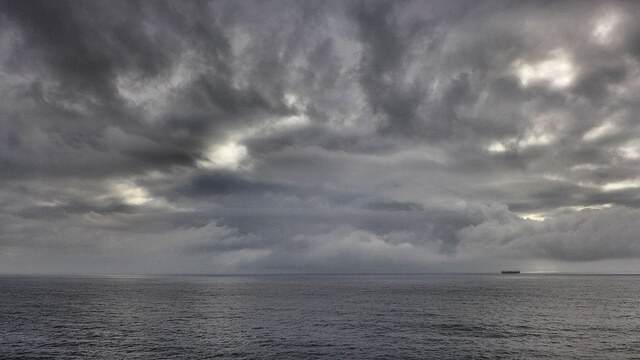The decision of the EU Member States on Operation Sophia, an EU Common Security and Defence Policy (CSDP) mission, has caused consternation – and rightly so. The Mission’s mandate has been renewed for six months but will no longer involve maritime presence. Ending the deployment of ships to the Mediterranean means ceasing the one positive element of Operation Sophia’s work. The Mission has rescued tens of thousands of people since 2015, almost 50,000 according to some estimates. This is perhaps not what the Member States intended or wanted from the Mission but its mere presence, combined with the duty of rescue, has led it to play this role.
The main focus of the Mission, and that which will continue, is “destroying the smugglers’ business model”, that weaselly expression which covers so much. In practice, for this CSDP Mission it has meant destroying boats, leading to ever more rickety crafts setting sail. It has also contributed to training the Libyan Coastguard, activities widely criticized, including by ECRE.
Of course Libya should have a functioning coastguard to fulfil its responsibilities as a coastal state. However, the strategy of supporting third country’s coastguard agencies while cutting or preventing Search and Rescue (SAR) by European (EU, state and non-state) actors is a deliberate attempt to avoid responsibility for rescued persons and to get other countries to take actions that lead to human rights violations and that would be illegal under international, EU and national law with consequences if carried out by Europeans. To over-simplify, people rescued by European ships cannot be taken to Libya, they are under the jurisdiction of the country rescuing, and have to be taken to a place of safety, which patently obviously Libya is not. Supporting the Libyan Coastguard allowed it to “rescue” 15,000 people and pull them back to Libya last year.
The decision on Sophia has been blamed on Matteo Salvini who very often suits and courts the role of villain. Since coming to power, he has threatened to veto the renewal of the Mission’s mandate for as long as disembarkation of persons by the ships operating under its auspices was to take place only in Italy. Salvini’s stance is concerning and not least because Operation Sophia, like its predecessor, was seen as a way to support and share Italian SAR efforts, following the end of Mare Nostrum. The incident with the Diciotti indicates the Italian Government’s opposition to any SAR efforts in the Mediterranean, by the Italian authorities as well as NGOs. If there’s no Italian SAR there’s nothing for the EU to support. Indeed, if there’s no SAR in the Mediterranean then there’s no need to share responsibility for it.
Blame can be spread more widely though. The mandate of Sophia was decided by all Member States, including its Libya focus, and is part of wider tendency to use CSDP Missions for migration prevention rather than for genuine security objectives; other Member States’ refusal to accept responsibility-sharing (in all its senses) has fueled Salvini’s rise; the previous Italian government pioneered cooperation with Libya (although at least it remained committed to SAR). Many European policy-makers are wedded to the idea that SAR creates a pull factor and must end, despite the overwhelming evidence of the horrific push factors in Libya that would lead anyone to get on a boat, especially when combined with smugglers’ lies and pressure.
The impact of this change to Operation Sophia is likely to increase the death rate for those attempting to cross, as well as creating additional burdens for merchant shipping in the area. The difficulty of finding a way forward using EU policies that require all Member States to agree (such as CSDP), is again revealed. In the light of this decision, ECRE reiterates its call for a coalition of the willing Member States to step up and reach an agreement on disembarkation and relocation. They have been doing so ship-by-ship but a more predictable albeit temporary arrangement is required and is within grasp.
For now, it is perhaps time to find a new name for Operation Sophia, called after a baby born after the rescue of her pregnant mother, who had arrived from Somalia via Libya. What would be the story of such a person now? A decision to stay in their country of origin or in Libya because the pull factor has been removed? Or embarkation to face a yet more uncertain fate?
Editorial: Catherine Woollard, Secretary General for the European Council on Refugees and Exiles (ECRE)
Photo: (CC) Tom Lee, August 2015
This article appeared in the ECRE Weekly Bulletin . You can subscribe to the Weekly Bulletin here.

